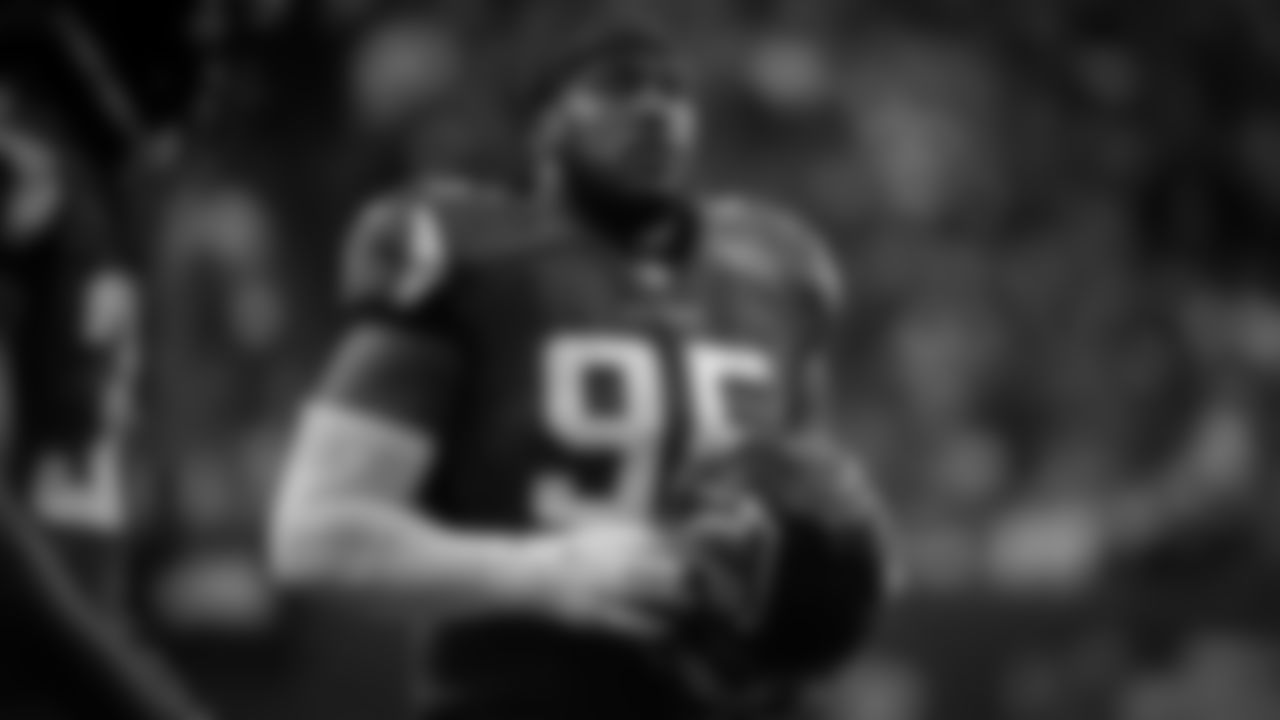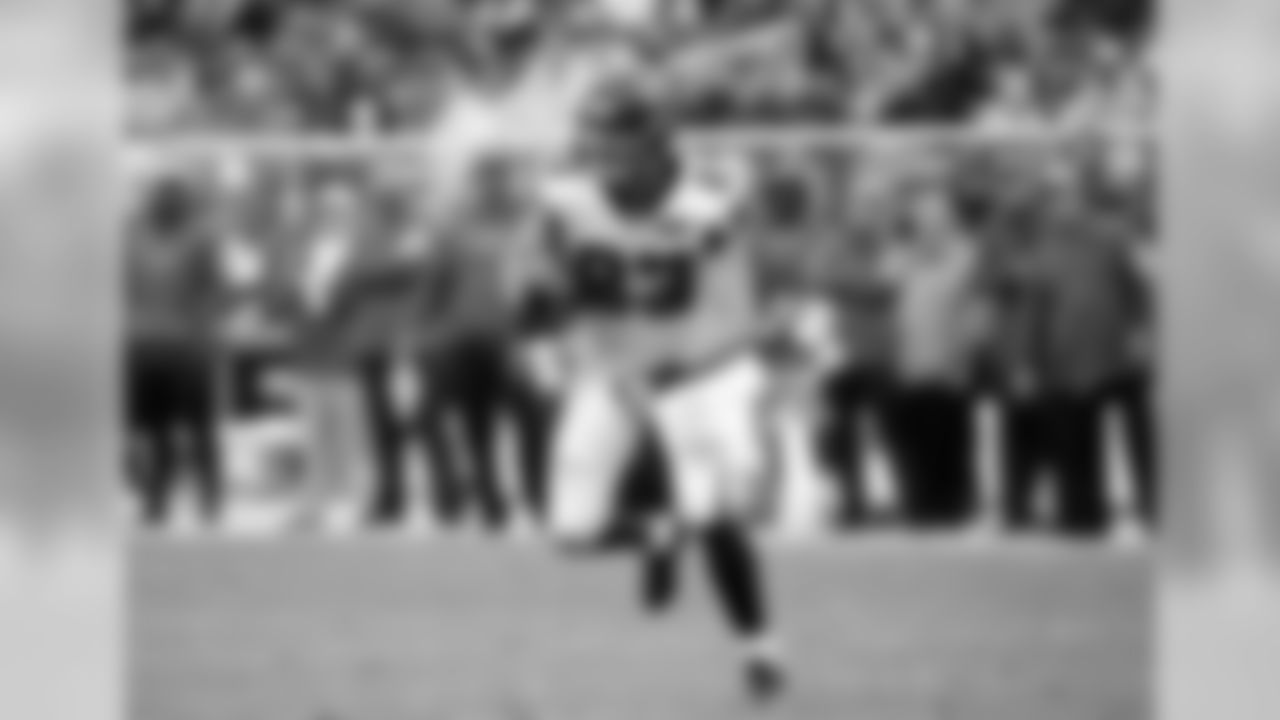When Dan Quinn signed on as the Falcons' head coach, he knew several key areas had to be addressed to get back on track. This list includes, and might be headlined by, the pass defense.
Last season, Atlanta finished at the bottom of the NFL in passing yards allowed, as injuries and a dearth of talent created issues at cornerback. But with a new playbook, better health and a promising rookie in tow, it's reasonable to expect the CBs to take a big, collective stride forward in 2015.
"There's a number of guys that we're throwing in the mix there at corner, and we want to see — for the corners — who can play outside and inside," Quinn said. "That's really one of the challenges.
"We got a number of guys this spring that we're kind of finding and seeing all the value that a guy can have. We're trying to use that versatility: who can play corner, who can play safety, who can play nickel. That's really what this time of the year is going to be about to try and find out more information."
One virtual guarantee is Desmond Trufant's role as the group leader. He's emerged as a premier option and, at 24, has yet to reach his ceiling.
The Falcons' 2016 roster is constantly evolving and we've amassed all the players in one gallery that will be updated throughout the year

CB Robert Alford

S Ricardo Allen

DT Jonathan Babineaux

OLB Vic Beasley Jr.

P Matt Bosher

K Matt Bryant

LB De'Vondre Campbell

RG Chris Chester

DE Adrian Clayborn

RB Tevin Coleman

CB Jalen Collins - Reserve Suspended List (4 Games)

T Tom Compton

FB Patrick DiMarco

RB Devonta Freeman

DE Dwight Freeney

WR Devin Fuller - IR

G Ben Garland

FS Dashon Goldson

CB C.J. Goodwin

DT Ra'Shede Hageman

WR Justin Hardy

LS Josh Harris

TE Austin Hooper

S Kemal Ishmael

DE Tyson Jackson

DT Grady Jarrett

LB Deion Jones

WR Julio Jones

CB Akeem King - IR

G Andy Levitre

C Alex Mack

T Jake Matthews

S Keanu Neal

TE Josh Perkins

G Mike Person

FS Brian Poole

LB Brooks Reed

LB LaRoy Reynolds

WR Aldrick Robinson

QB Matt Ryan

WR Mohamed Sanu

QB Matt Schaub

T Ryan Schraeder

G Wes Schweitzer

DE Derrick Shelby

TE Jacob Tamme

S Robenson Therezie

TE Levine Toilolo

CB Desmond Trufant

LB Courtney Upshaw

CB DeMarcus Van Dyke - IR

RB Terron Ward

LB Sean Weatherspoon

WR Eric Weems

LB Philip Wheeler

WR Nick Williams

LB Paul Worrilow
Beyond Trufant, the position's hierarchy is unclear. Robert Alford flourished in 2013 but injuries marred his 2014. While Jalen Collins — this spring's second round choice — has a lot of potential, it's too early to know if he's ready to dive in headfirst. Dezmen Southward was drafted as a safety and is switching to corner; whether he can handle the transition remains to be seen.
So yes, there are a lot of question marks here. But there's also a lot to like.
Alford's return should provide a nice boost, for starters. His broken wrist, which sidelined him for the final six games of 2014, is nearly healed and doesn't seem to be a factor anymore. The Southeastern Louisiana alum has been participating in OTAs and claims the damage is "nothing right now."
"It's part of football," he said. "I'm feeling good, just trying to get back in the swing of things. I don't think (the new defense) is a big transition at all, but there are still some things I want to learn from the coaches."
If Alford can improve upon or even return to his 2013 production, he could be exactly what the Falcons need. Anything less, though, might result in diminished playing time thanks to Collins: a tall, aggressive corner who, on paper, is a great fit in Quinn's system.
Nevertheless, Alford doesn't appear worried about the looming battle between these two.
"The only motivation I need is myself," he said. "I go out there every day and just compete. That's why they picked me up in the draft, because they know I'm a competitor. So I'm just coming out here each and every day and showing the coaches what I can do."
Given his past, the learning curve shouldn't be steep for Collins. He grew used to a similar brand of football in college — keep it simple, be assertive, play lots of man coverage — which will help mitigate his inexperience.
"It's something I've come from with LSU, physical defense," he said. "We pressed most of the time at LSU and it's something they're looking forward to me doing this season, so I'm going to step up to the challenge.
"I'd definitely love to be one of the rookies of the year, hopefully make the Pro Bowl. Everything is up in the air right now and I'm just working as hard as I can."
Regardless of how the totem pole is constructed, Alford, Collins and perhaps even Southward figure to be important assets in 2015. Today's NFL is exceptionally high-scoring, and having fewer than three gifted, reliable corners can be problematic. To combat the league's increasingly dangerous offenses, many teams now lean heavily on a trio CBs — two on the outside, one on the inside or at nickelback.
The numbers clearly show this change in deployment: Last year, five or more defensive backs were on the field during 60 percent of plays from scrimmage, according to Steve Palazzolo. On the other hand, exactly four DBs were used 38.2 percent of the time. Containing three-, four- and five-receiver sets are as important as ever, and doing so is hard without a lot of depth.
The Falcons now have depth. At this point, it's about developing raw ability and composing an effective scheme suited for their personnel. If Quinn and Co. can do just that, Atlanta's pass defense may turn into a strength faster than many envision.


















